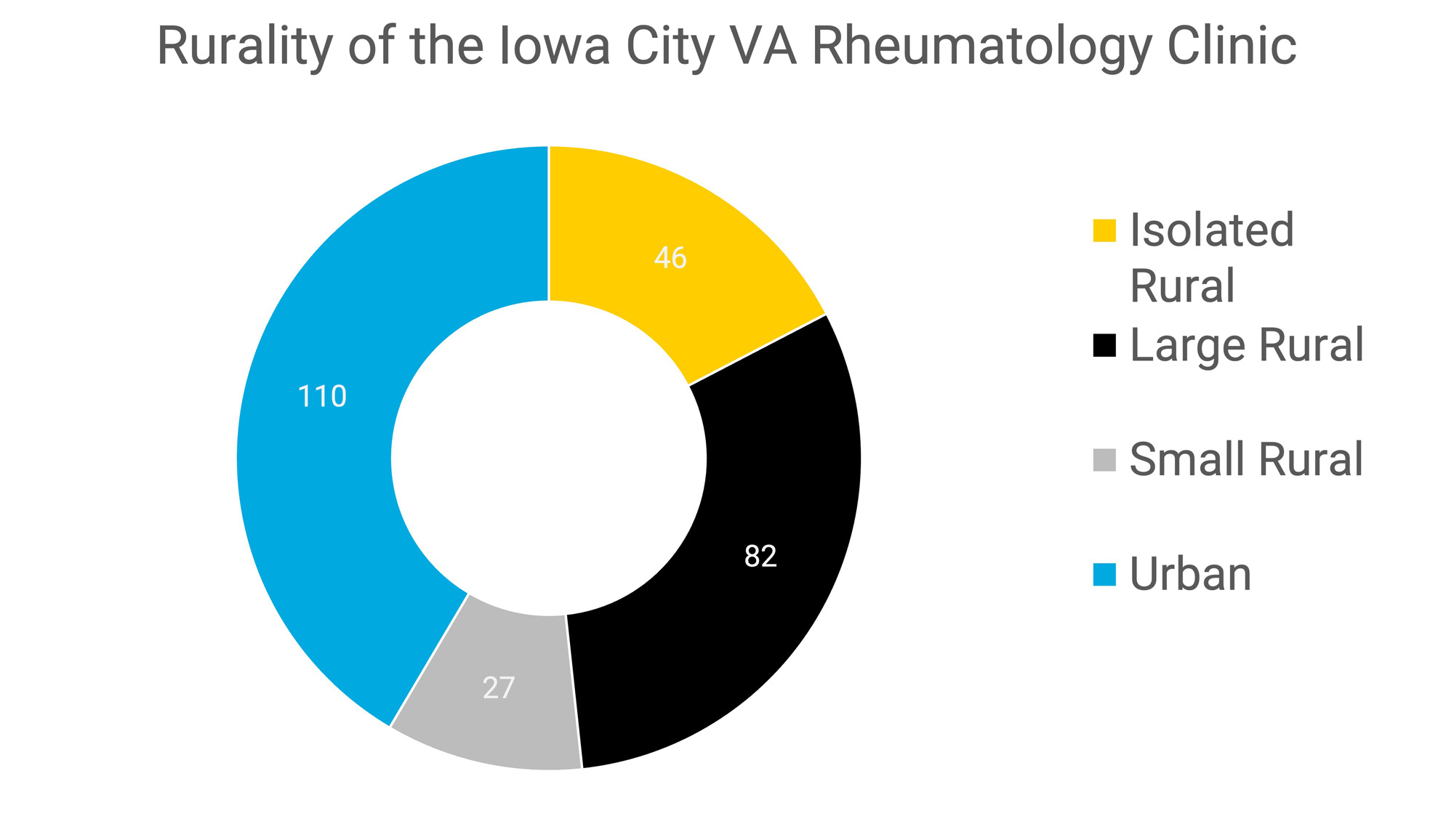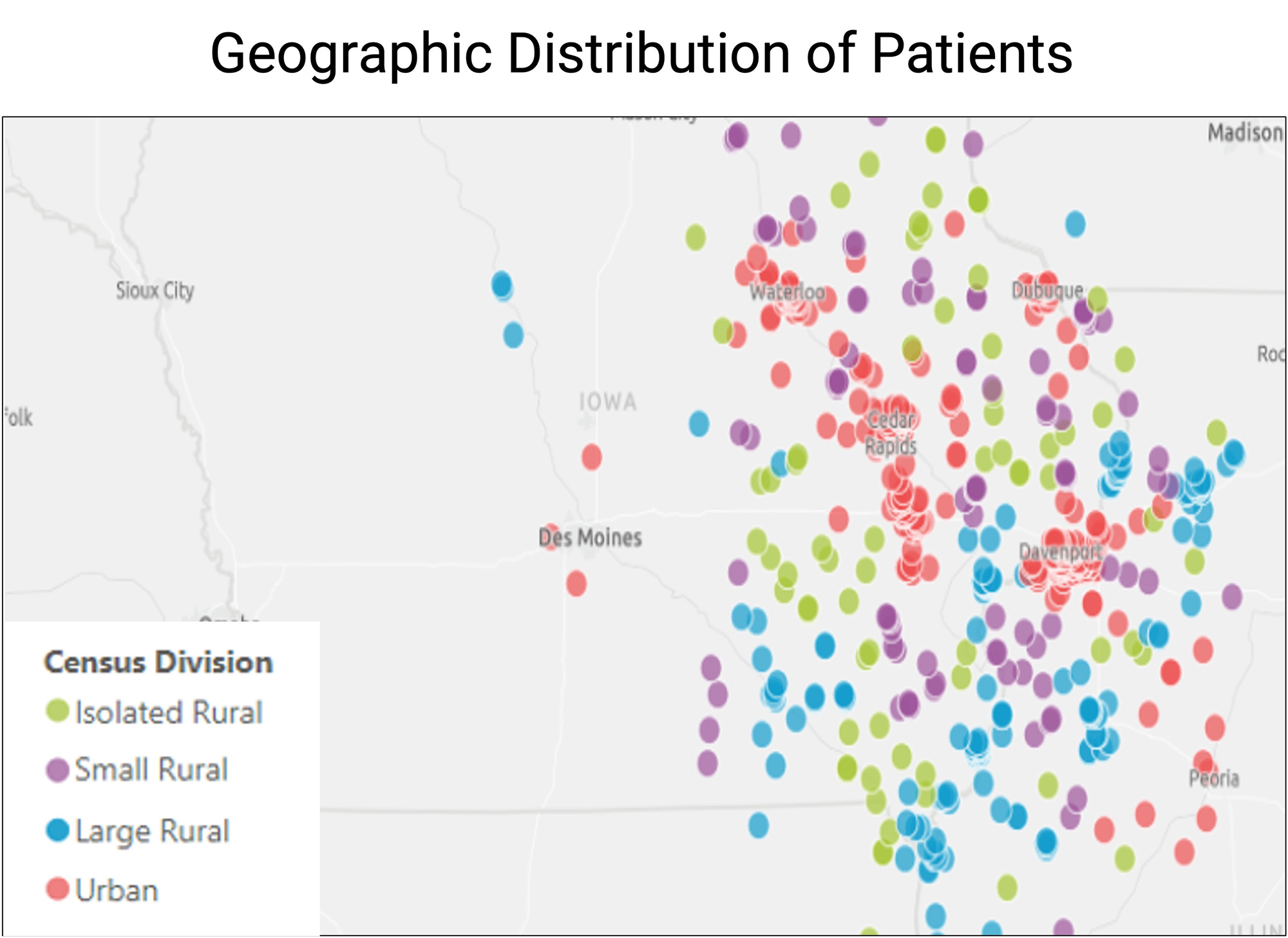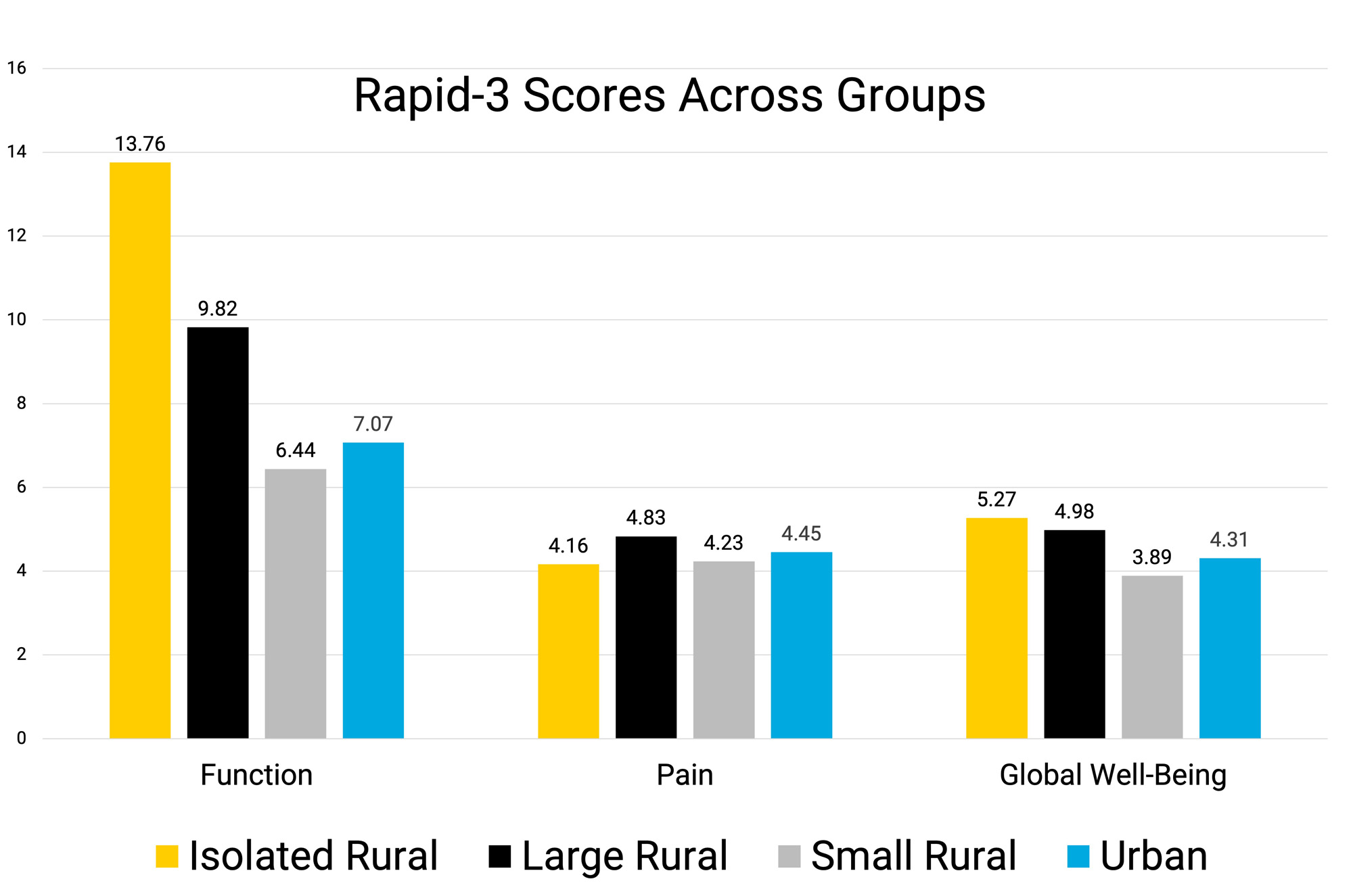Session Information
Date: Monday, November 13, 2023
Title: (1013–1032) Healthcare Disparities in Rheumatology Poster II: Socioeconomic Determinants
Session Type: Poster Session B
Session Time: 9:00AM-11:00AM
Background/Purpose: Pain is a common complaint seen in many autoimmune rheumatologic conditions, along with decreased function and decreased sense of well-being. Pain is a highly person-specific symptom without well-validated biomarkers, making it difficult to assess and use as a standardized metric in guiding immune modulatory therapy. Multiple lines of evidence suggest that rural-dwelling patients may conceptualize and relay pain differently than non-rural-dwelling patients, which may complicate the delivery of optimal care and further healthcare disparities. Within a clinic that serves predominantly rural-dwelling patients, we aim to determine if rural-dwelling status correlates with self-reported levels of pain, function, and sense of well-being in patients with autoimmune rheumatologic diseases. We additionally aim to determine if there is a statistically significant difference in functional activity, pain levels, and sense of well-being between rural-dwelling patients and non-rural-dwelling patients. These correlations will empower quality improvement initiatives within our clinic.
Methods: We correlate rurality with elements of the RAPID-3 form. Rurality is determined by RUC (Rural-Urban Commuting) Codes based on the patient’s home address. Using RUC, patients were classified into four categories: (1) urban, (2) large rural town, (3) small rural town, and (4) isolated small rural town. The RAPID-3 is a validated questionnaire consisting of three parts: (1) functional status, (2) pain level, and (3) global well-being. All items are self-reported by patients.
Results: Among the 265 rheumatology patients seen between May 1, 2022, to November 1, 2022, 110 were urban-dwelling and 155 were rural-dwelling (large [82], small [27], or isolated [46]).Percentages of self-reported gender and ethnicity/race (Non-Hispanic White, Hispanic, Black) were comparable as well as average age. Isolated rural-dwelling patients had the highest degree of dysfunction (13.76/20) and sense of poor well-being (5.27/10) compared to small rural-dwelling patients (6.44/20 and 3.89/10, respectively), who had the lowest degree of dysfunction and poor sense of well-being, and urban-dwelling patients (7.07/20 and 4.31/10, respectively) [p-value< 0.01).In contrast, dwellers of large rural towns report the highest levels of pain (4.84/10) compared to those in isolated rural communities, who had the lowest (4.16/10).However, differences in levels of pain were not statistically significant.
Conclusion: In this clinic, there exist healthcare disparities in measuring pain, dysfunction, and sense of well-being among rural-dwelling patients with autoimmune rheumatologic diseases. Those that live in isolated rural communities tend to report lower amounts of pain despite having higher levels of poor well-being and dysfunction, compared to those living in larger rural and urban settings. These findings suggest that we may be systematically underestimating the burden of pain in patients living in isolated rural communities that obtain care through our clinic. These results empower quality improvement initiatives to better solicit pain and dysfunction among rural-dwelling patients.
To cite this abstract in AMA style:
Yang L, Kumar B, Swee M. Recognizing Rural Healthcare Disparities in Pain Assessment for Autoimmune Rheumatologic Diseases [abstract]. Arthritis Rheumatol. 2023; 75 (suppl 9). https://acrabstracts.org/abstract/recognizing-rural-healthcare-disparities-in-pain-assessment-for-autoimmune-rheumatologic-diseases/. Accessed .« Back to ACR Convergence 2023
ACR Meeting Abstracts - https://acrabstracts.org/abstract/recognizing-rural-healthcare-disparities-in-pain-assessment-for-autoimmune-rheumatologic-diseases/



